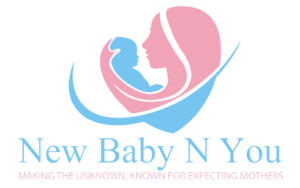Infants usually make a mixture of discorded noises. Sometimes, they can be quite loud while breathing or coughing as they are still learning to survive outside the womb. Your baby’s tiny lungs and nose are just beginning to breathe air. The outside world is also drier than your womb over the past nine months.
Occasional sneezing, squeaking, or snoring are completely normal for any newborn. Snorting in a newborn happens because of tiny nasal passages. As a result of which the nostrils are slightly dry which makes them breathe heavily and produce snorting noises. However, if this continues for a longer duration then it can be a matter of concern for the parents.
What Causes Newborns to Snort?
Snorting occurs when the airway in the throat becomes blocked or constricted, causing the inhaled air to vibrate the tissues of the throat. Your baby’s muscles, including those in his neck, relax during sleep and push against the back wall of his airway, causing him to snore.
However, it may not be so simple. Parents are advised to observe the frequency and duration of their child’s snort. There could be some anomalies leading to conditions such as
-
Decrease in Temperature
Due to a decrease in temperature, there is a high chance of collection of mucus in the nostrils which blocks the nasal pathway leading to heavy breathing or snorting.
-
Salvation
When the baby is teething, they salivate more than usual which leads to increased drooling which might trickle to their nasal cavity and lead to snorting.
-
Sleep Apnea
This condition arises when the airway pathway is completely or partially blocked which eventually causes the anterior section to press against the posterior section.
-
Tonsillitis
Inflammation and enlargement of tonsils result in the obstruction of the small air pathways of infants which compels the baby to snort.
-
Premature Birth
Babies who are prematurely born, i.e, before the completion of the third trimester are most likely to have breathing issues due to immature respiratory apparatus.
-
Allergies
Allergies can be one of the common reasons for snorting in newborns. Your little one might be allergic to something present in their surroundings which causes him to snore while sleeping.
Does Newborn Snorting Indicate Any Serious Disease?
The air pathway and lungs enlarge as children grow and snorting eventually stops. But if it doesn’t, then it might indicate some severe conditions such as
-
Deviation in Nasal Septum
The nasal septum equally divided the nasal cavities. Sometimes, unequal division occurs leading to a sinus infection, loud breathing noises, and even snorting.
-
Asthma
Babies who snore are most likely to have asthma due to allergies.
-
Heart Problems
If the baby snores regularly without any increase in weight might indicate serious heart-related problems.
Adverse Effects of a Newborn Snorting
Here are some common side effects of a newborn snorting:
- Bedwetting
- Social anxiety
- Inactive lifestyle
- Nightmares
- Poor memory
How Can Parents Ease Snorting in Infants?
Fortunately, there are some simple ways to ease snorting in infants before visiting a doctor. Parents can do the following.
- Elevate the baby’s head by 3-4 inches by putting a thick blanket in the head region.
- Cut off dairy products for a few weeks.
- In case the baby has a blocked nose, parents should immediately clean it by using saline drops. It should only be done after consulting a pediatrician
- Avoid the presence of animals or pets near the babies. Maintain a clean environment around your children to avoid any health-related issues.
- Use a humidifier in the sleeping room to moisturize the air. Humidifiers pump water vapour into the atmosphere to maintain a good level of moisture and humidity for easy respiration. It will not necessarily prevent snorting, but it will make breathing easier for infants.
When to Seek Additional Help?
- If the baby continues to snort for a regular interval of time, more than 4 weeks or months, parents should not wait anymore and consult a General Pediatrician. In the following scenarios, reach out to the doctor.
- If the sound of the snort is shrill, an expert’s consultancy is required. Snoring can be normal sometimes but loud and shrill snoring isn’t.
- If snorting disrupts your child’s sleep and keeps them awake at night, you must definitely reach out to the Pediatrician to learn about the underlying causes.
- If the baby stops breathing while snoring then there might be some serious underlying cause that needs to be subsided. Not being able to breathe properly is something very concerning. Hence, parents must keep an eye on their child’s breathing patterns.
Summing Up
Parents should observe their kids’ breathing and sleeping patterns as it will help them detect the underlying problems in advance and avoid major complications in the future. We have discussed the easy ways to deal with newborn snorting above. However, we are no experts therefore, you must always consult a pediatrician in case of any abnormalities.

